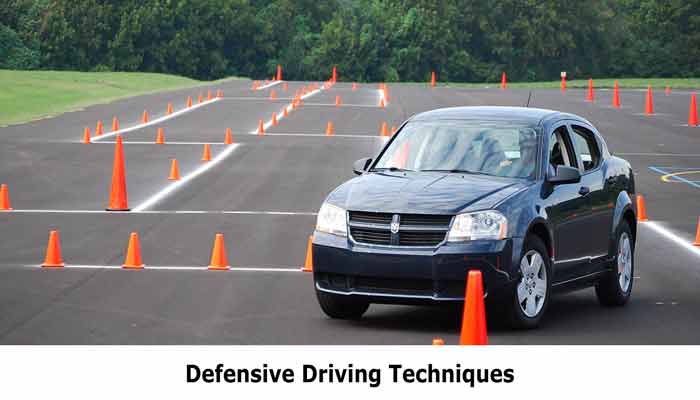The Importance of Defensive Driving Techniques

Defensive driving is a set of techniques and strategies that are designed to help drivers anticipate and avoid potential hazards on the road. These techniques are especially important for new drivers, who may not yet have the experience and skills necessary to react quickly and safely to unexpected situations. However, even experienced drivers can benefit from practicing defensive driving techniques, as they can help to reduce the risk of accidents and injuries.
One of the most important aspects of defensive driving is being aware of your surroundings at all times. This means paying attention to other vehicles, pedestrians, and potential hazards such as construction or roadwork. It also means being aware of the weather conditions, such as rain, snow, or fog, and adjusting your driving accordingly.
Another key component of defensive driving is maintaining a safe following distance. This means keeping a safe distance between your vehicle and the one in front of you, so that you have enough time to react in case of a sudden stop or other unexpected event. This is especially important when driving on busy roads or in heavy traffic, as there may be more potential hazards to watch out for.
Anticipating the actions of other drivers. This means paying attention to the signals and movements of other vehicles, and trying to anticipate what they might do next. For example, if you see a car in the distance that is signaling to change lanes, you should be prepared for them to move into your lane. This can help you to avoid a collision or other accident.
It’s also important to be aware of your own limitations as a driver, and to avoid taking unnecessary risks. This might mean avoiding distractions like using your phone or driving in conditions that you are not comfortable with, such as at night or in bad weather. It also means avoiding driving under the influence of drugs or alcohol, as these can significantly impair your ability to react to potential hazards on the road.
Use your mirrors and signals correctly. This means checking your mirrors frequently, and using your signals when changing lanes, merging onto a highway, or turning. This helps to communicate your intentions to other drivers and can help to prevent accidents.
Finally, defensive driving also involves being prepared for emergencies. This means having a well-stocked emergency kit in your vehicle, including things like a flashlight, first aid kit, and a spare tire. It also means knowing how to handle common problems that may arise while driving, such as a flat tire or a dead battery.
In summary, defensive driving is a set of techniques and strategies that are designed to help drivers anticipate and avoid potential hazards on the road. By being aware of your surroundings, maintaining a safe following distance, anticipating the actions of other drivers, avoiding unnecessary risks, using your mirrors and signals correctly, and being prepared for emergencies, you can greatly reduce the risk of accidents and injuries while driving. It’s important for all drivers to practice defensive driving skills regularly and incorporate them into their daily driving habits.
Highlights
- Keep a safe following distance from the vehicle in front of you to allow for sudden stops or turns.
- Always be aware of your surroundings, including other drivers, pedestrians, and road conditions.
- Avoid distractions while driving, such as texting, eating, or using your phone.
- Use your seatbelt and make sure all passengers do the same.
- Observe speed limits and adjust your speed to match the flow of traffic and road conditions.
- Always use your turn signals to indicate your intentions to other drivers.
- Stay in the proper lane and avoid weaving in and out of lanes.
- Always be prepared to react to the unexpected, such as sudden stops or turns by other drivers.
- Keep your vehicle well-maintained, including regular tire rotations, oil changes, and brake inspections.
- Take breaks when you need to and avoid driving when tired or under the influence of drugs or alcohol.
